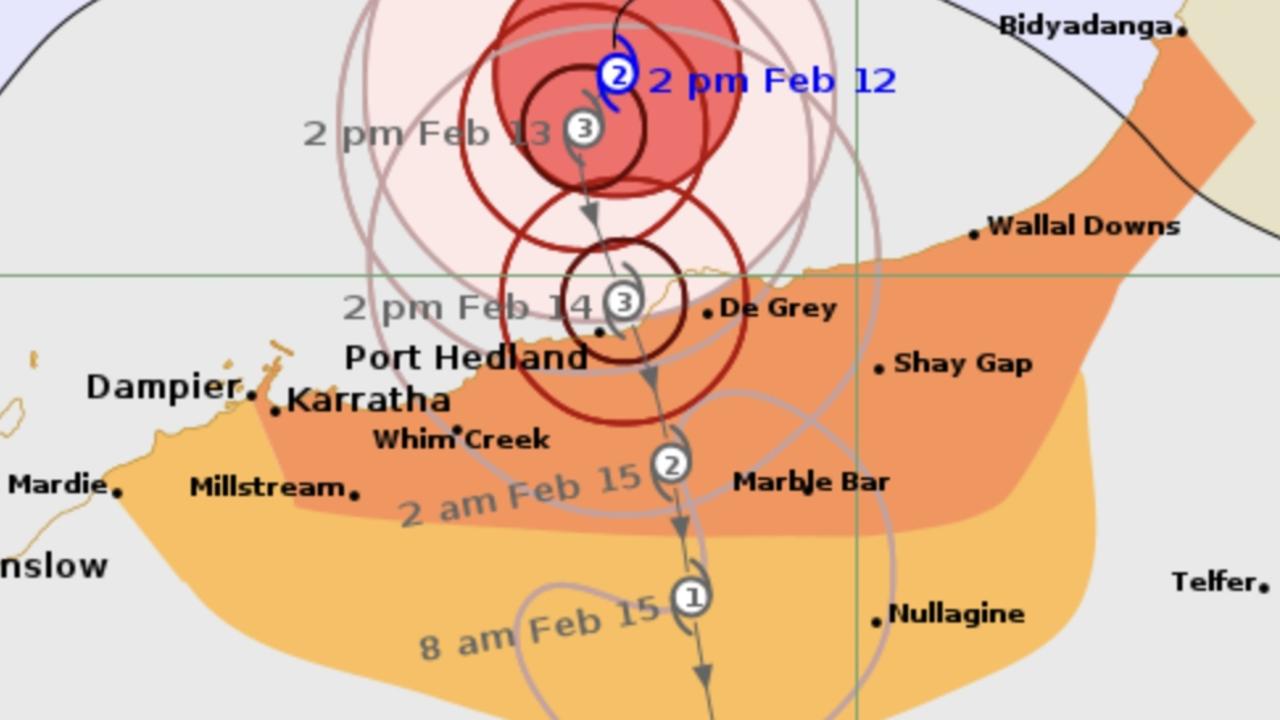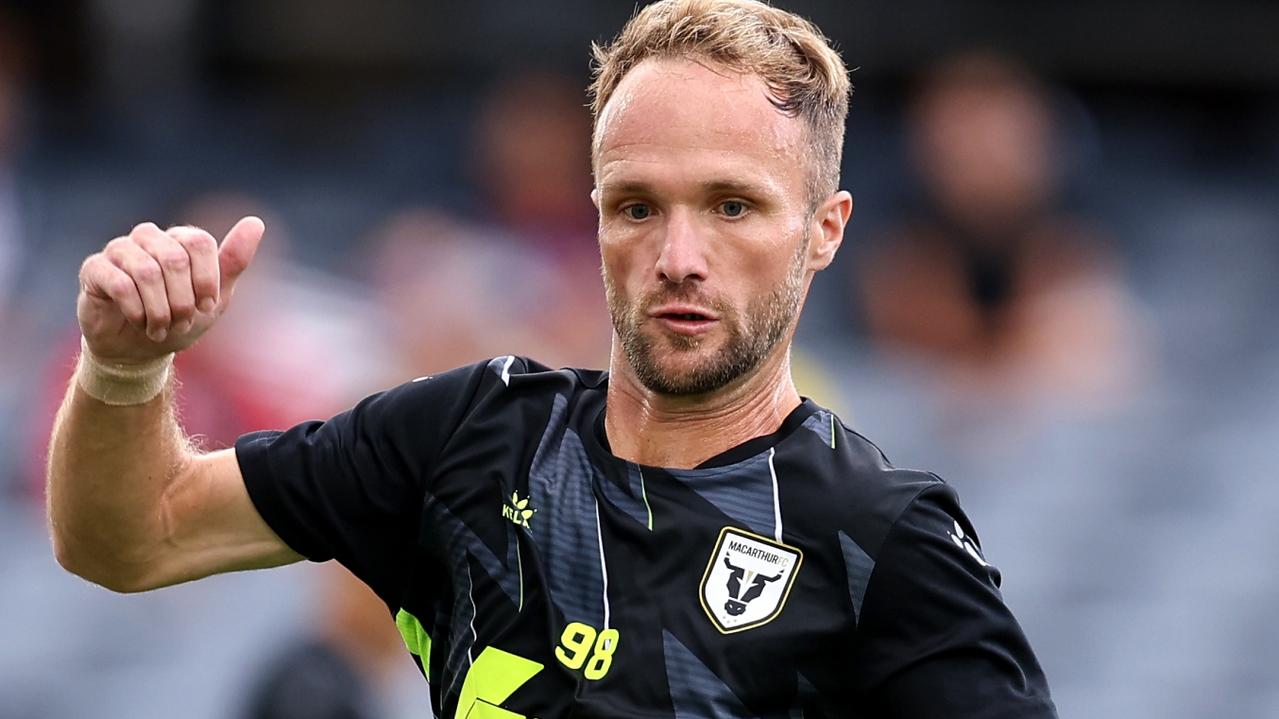How and why Australia plans to vaccinate 12 to 15-year-olds
The Pfizer vaccine has been approved for kids aged 12 to 15. Find out why and how the rollout will work.
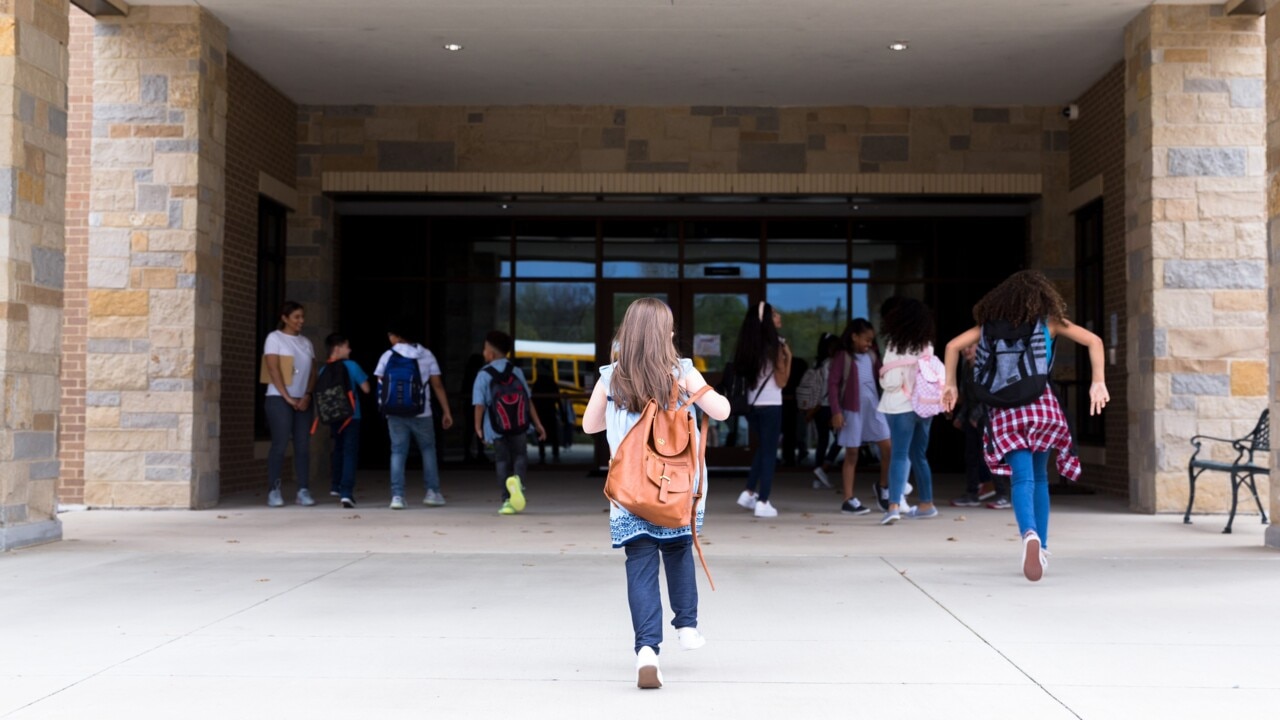
More than one million young people will be soon able to book in for a Pfizer vaccination.
Bookings at GP clinics will open on September 13, with a mass vaccination program also planned for schools.
Australia’s regulator on Friday approved use of the Pfizer jab for anyone aged over 12.
Health Minister Greg Hunt promised every child seeking the Covid-19 jab will be able to get a shot in the arm by the end of the year.
Here is how it will work.
What vaccine has been approved for kids aged 12 to 15?
The Australian Technical Advisory Group on Immunisation (ATAGI) has approved the use of the Pfizer-BioNTech vaccine for use in Australians over 12 years.
In a statement, ATAGI noted the potential for new variants could posed a greater risk to non-immune children and adolescents.
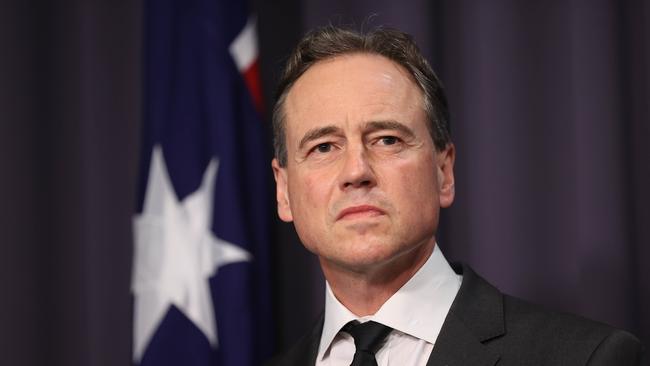
“Vaccinating adolescents is anticipated to contribute to a reduction in SARS-CoV-2 transmission in the broader population,’’ it said.
“Vaccination of adolescents would likely contribute to reducing school-based transmission. Many of these studies were conducted prior to detection of the Delta and other VoCs with higher transmissibility, suggesting even greater benefit from vaccination.”
Why does it matter?
From January to August, 13.4 per cent of cases of Covid-19 reported in Australia were aged 10 to 19 years.
The vaccine watchdog is also considering the use of the Moderna vaccine for teenagers but that advice won’t be finalised until the national medical regulator approves the jab for use in that cohort.
Mr Hunt said once that advice is finalised, the vaccine will be made available to teenagers.
When and where will kids be able to get the vaccine?
Prime Minister Scott Morrison said kids aged 12 to 15 would be able to book an appointment for the Pfizer vaccine from September 13.
“Principally I would see that happening especially through the GP network,” he said.
“That provides the opportunity for family vaccinations, for the family to go along together across those age groups.”
The chief of Australia’s vaccine rollout, Lieutenant General John Frewen, urged parents to be patient when booking for their kids.
“These 12 to 15-year-olds will broadly be able to make bookings from the middle of next month,” he said.
“Parents, get your kids booked in and to have a bit of patience.”
What’s going on around the country?
Earlier this week, the Northern Territory moved ahead of the federal government and made all 12 to 15-year-olds in the Top End eligible for the vaccine.
While bookings will be opened up, it does not necessarily mean Australia has the supply to vaccine everyone who wants a vaccine immediately.
Australia is in short supply of the Pfizer vaccine. Due to the limited supply, ATAGI considers the cohort a lower priority than older people.
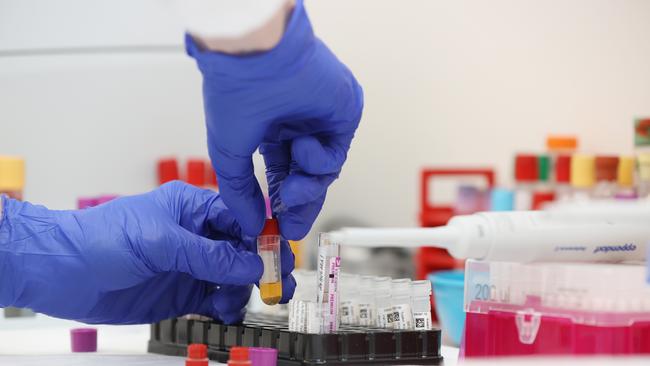
“Vaccination still does benefit children by preventing COVID-19 and its complications, and in lowering the risk of school disruption, although their contribution to community transmission is thought to be less than in adults,” the expert panel said.
Mr Morrison conceded while vaccine supply would increase in coming months, he couldn’t confirm when Australia would have enough doses to ease demand.
“We have some promising leads in terms of doses,” he said.
“I can't confirm those at this point but we have been working on them now for some time. That is giving us some greater confidence about being able to particularly go forward with this decision to vaccinate children aged 12 to 15.”
Are there any particular risks or side effects for kids that are different to adults?
The ATAGI advice notes adverse events related to the vaccine for adolescents were generally mild to moderate in severity and typically resolved within one to two days, according to data from clinical trials.
One in five adolescents developed a fever after the second dose of Pfizer.
Injection site pain was the most frequently reported adverse event after dose one.
In rare cases, ATAGI said, the mRNA vaccine may cause inflammation of the thin layers that surround the heart (pericarditis).
“The risk appears highest in young people (adults
In the United States, the vast majority have been mild and patients have recovered quickly with supportive care.
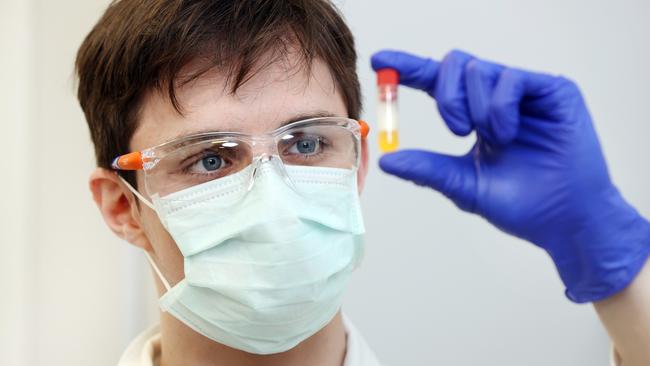
How effective is the vaccine in teenagers?
The vaccine watchdog said results from a recent clinical trial with 2000 participants aged 12 to 15 years, vaccine efficacy against symptomatic Covid-19 was 100 per cent seven days after dose two.
After dose one and before dose two, there were three Covid-19 cases (within 11 days after dose one) among Comirnaty recipients compared with 12 cases in the placebo group resulting in vaccine efficacy of 75 per cent.
The advice also noted an ongoing Moderna clinical trial of approximately 4000 participants aged 12 years.
Vaccine efficacy against symptomatic Covid-19 from 14 days after dose two was 93.3 per cent.
What has the overseas experience been with jabbing kids?
In the US, approximately seven million adolescents aged 12 to 15 years and four million aged 16 to 17 years have now received at least one dose of the Pfizer vaccine.
Approximately 40 per cent of Israeli teens 12-15 have received the jab since June.
Canada — the first country to authorise the jab for Covid-19 in children aged 12 to 15 — has fully vaccinated 59 per cent of the cohort as of 14 August.
In France, more than 25 per cent of children aged 12 to 17 have received both doses.
The UK has adopted a more cautious approach, with the vaccine only approved among vulnerable children, despite the regulator endorsing Pfizer’s use in 12 to 15-year-olds.
An interim report from Israel’s ministry of health – where Pfizer has been used to vaccinate 16 to 18-year-olds since January –reported vaccine effectiveness of 98 per cent against symptomatic infection and hospitalisation.
There were no deaths among the vaccinated.
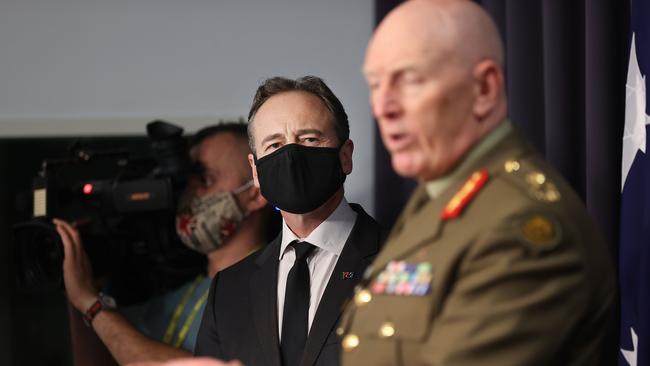
When will children under 12 be eligible for the vaccine?
The health minister has been reluctant to put a time frame on when children under 12 will be able to be vaccinated.
“In terms of under 12s, at this stage we don’t have an application. Clinical trials are being conducted around the world,” Mr Hunt said.
“I don’t want to set false expectations on information or timing.”
Clinical trials are underway for children as young as six months old.
Australia is set to reopen once 80 per cent of adults are jabbed. Won’t that leave kids vulnerable to catching Covid-19?
The rising number of cases in children in NSW, Victoria and the ACT has become a thorn in the side of the national plan.
Under the plan agreed to by national cabinet, Australia will begin a phased reopening once 70 per cent of the eligible population is fully vaccinated.
The target does not factor in children under 16.
But the prime minister insists the two objectives – vaccinating children and reopening the nation – are not mutually exclusive.
“That will be a very clear decision of my government that we will need to go ahead and vaccinate children,” Mr Morrison said.
“So these two objectives are not working against each other, I see them working completely together with each other.”
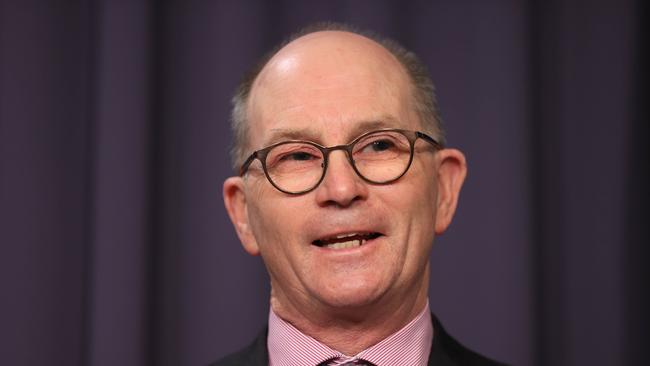
Australia’s chief medical officer, Professor Paul Kelly, pleaded with people to access the vaccine as soon as possible in order to protect the young.
“Parents, please get vaccinated. Older siblings will also be part of that cocooning effect,” he said.
“Teachers, please get vaccinated. Anyone who has anything to do with young kids, please, get vaccinated. I have made my point clear.
“Now is the time to make an appointment and get the vaccination started.”

